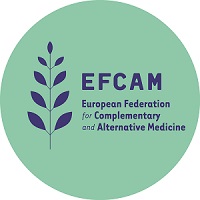The growth in the popularity in CAM among European citizens and people around the World has caused widely representative organisations such as the World Health Organisation and the Council of Europe to consider the field and publish policy statements.
THE COUNCIL OF EUROPE
In 1999 the Council of Europe produced a concise description of the CAM field in resolution 1206, which includes the following statements:
- Alternative, complementary and non-conventional forms of medicine are growing in importance in Europe and throughout the world.
- The extent to which they are recognised and the legal status they enjoy vary greatly from one country to the next. Patients are increasingly calling for the use of different forms of treatment. This is a fact that cannot be ignored.
- The Assembly believes that the best guarantee for patients lies in a properly trained profession, which:i) recognises its limitations,
ii) has a system of ethics & self-regulation and
iii) is also subject to outside control. - It would be unrealistic to wish to prevent the emergence of new professions in the health sector.
- The Assembly believes that in the future alternative or complementary forms of medicine could be practised by doctors of conventional medicine as well as by any well-trained practitioner of non-conventional medicine.
- The Assembly called on the member states to support and speed up the comparative studies and research programmes currently under way in the European Union and to disseminate the findings widely.
THE WORLD HEALTH ORGANISATION
WHO refers to Traditional and Complementary and Alternative Medicine and defines traditional medicine as:
“The sum total of the knowledge, skills, and practices based on the theories, beliefs, and experiences indigenous to different cultures, whether explicable or not, used in the maintenance of health as well as in the prevention, diagnosis, improvement or treatment of physical and mental illness.”
http://www.who.int/medicines/areas/traditional/en/index.html
VISION AND STRATEGY
The strategic objectives are:
– To build the knowledge base for active management of T&CM through appropriate national policies.
– To strengthen the quality assurance, safety, proper use and effectiveness of T&CM by regulating products, practices and practitioners.
– To promote universal health coverage by integrating T&CM services into health care service delivery and self-health care.
https://www.who.int/
